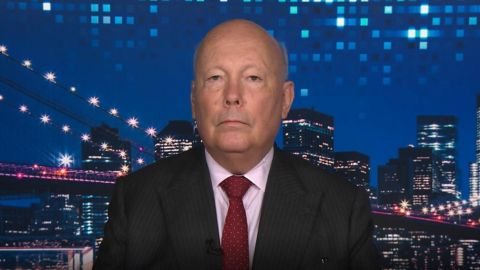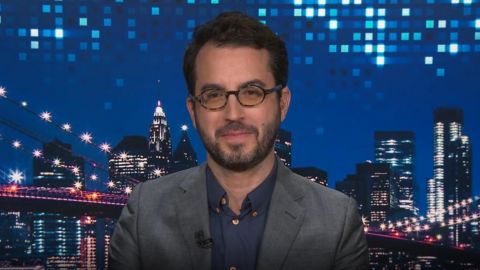Read Transcript EXPAND
CHRISTIANE AMANPOUR: But for new readers, explain exactly what you’re asking people to do.
JONATHAN SAFRAN FOER, AUTHOR: So I should say, it’s not something that I’m asking anybody to do and it’s not an opinion. It’s very well-established and uncontroversial science at this point that there are four things that we can do as individuals to participate in the saving of the planet. And these four actions matter significantly more than anything else. They are flying less, living car-free which is not the same as having a hybrid but living car-free, having fewer babies, and eating a plant-based diet. So, 85 percent of Americans drive to work and most of our cities, like most cities around the world, are designed to require cars. More than half of the flights we take are either for business or for what are called non-leisure personal purposes like visiting a sick relative. And most people, most people watching this, are probably not in the process of deciding whether or not to have a kid now, but eating is a decision we make three times a day. And according to the IPCC, we have no hope of achieving the goals of the Paris Climate Accord even if we do everything else if we don’t really dramatically reduce our meat and dairy consumption. The most comprehensive analysis of this was published at the end of last year in Nature Magazine which said that while people who live in undernourished parts of the world could actually afford to eat a little bit more meat and dairy, people who live in the cities of Europe, UK, the United States have to reduce meat consumption by about 90 percent and reduce dairy consumption by about 60 percent. So that’s complicated. You know, how does one — you don’t want to become an eating calculator. You don’t want to ask for 90 percent of– a 10 percent, you know, what it is that you’re ordering at a restaurant or we want to find ways to make these habits as easy as possible —
AMANPOUR: OK.
SAFRAN FOER: — knowing that they are not going to be effortless. So, what I suggest in the book is thinking of breakfast and lunch as sort of distinct from dinner. So we could not eat animal products at breakfast and lunch, and then eat whatever you’re going eat at dinner. That’s a good way to participate.
AMANPOUR: You referenced the IPCC, the Intergovernmental Panel on Climate Change, is sort of under the U.N. umbrella, and is latest report did in fact come out this August. I guess, after you’d written the book and it had a huge actual, you know, exaltation about agricultural and eating and totally changing the planet’s eating habits. Can we just read a little bit from that report? Balanced diets featuring plant-based foods such as coarse grains, legumes, fruits and vegetables and animal-sourced food produced sustainably in low greenhouse gas emission systems, present major opportunities for adaptation to and limiting climate change.
About This Episode EXPAND
Jonathan Safran Foer speaks to Christiane Amanpour about his new book “We Are the Weather: Saving the Planet Begins at Breakfast.” Democratic presidential candidate Marianne Williamson joins the program to talk policy plans and what it will take for her party to beat Trump in 2020. Julian Fellowes discusses the new “Downton Abbey” film.
LEARN MORE


